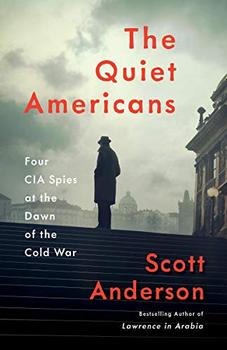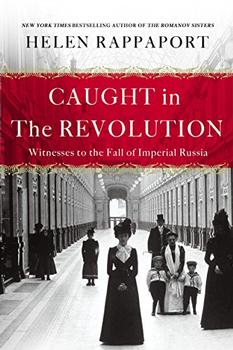Summary | Excerpt | Reviews | Beyond the book | Read-Alikes | Genres & Themes | Author Bio

The Crushing of Eastern Europe, 1944-1956
by Anne ApplebaumIn the long-awaited follow-up to her Pulitzer Prize-winning Gulag, acclaimed journalist Anne Applebaum delivers a groundbreaking history of how Communism took over Eastern Europe after World War II and transformed in frightening fashion the individuals who came under its sway.
At the end of World War II, the Soviet Union to its surprise and delight found itself in control of a huge swath of territory in Eastern Europe. Stalin and his secret police set out to convert a dozen radically different countries to Communism, a completely new political and moral system. In Iron Curtain, Pulitzer Prize-winning journalist Anne Applebaum describes how the Communist regimes of Eastern Europe were created and what daily life was like once they were complete. She draws on newly opened East European archives, interviews, and personal accounts translated for the first time to portray in devastating detail the dilemmas faced by millions of individuals trying to adjust to a way of life that challenged their every belief and took away everything they had accumulated. Today the Soviet Bloc is a lost civilization, one whose cruelty, paranoia, bizarre morality, and strange aesthetics Applebaum captures in the electrifying pages of Iron Curtain.
The book is a fascinating study of how an ideology transformed millions of people's lives in a very short period of time, and Anne Applebaum does a remarkable job of comparing and contrasting each country's gradual disappearance behind the "Iron Curtain." Students of modern history will definitely want to add this one to their libraries...continued
Full Review
(795 words)
This review is available to non-members for a limited time. For full access,
become a member today.
(Reviewed by Kim Kovacs).
 Communism is an economic and philosophical theory that can be summed up by a phrase made popular by the "father of communism," Karl Marx: "From each, according to his ability, to each according to his need."
Communism is an economic and philosophical theory that can be summed up by a phrase made popular by the "father of communism," Karl Marx: "From each, according to his ability, to each according to his need."
In its ideal form, all property is held in common; there is no private ownership. There are also no class divisions, and equal weight is given to everyone in the society regardless of gender or race. Poverty and wealth are both non-existent since all products and services are distributed equally to all. Decisions are based on what will benefit society as a whole as opposed to what will enrich just one person or group.
Although communism became an important influence beginning in the middle of the 19th century, it is not a new ...
This "beyond the book" feature is available to non-members for a limited time. Join today for full access.

If you liked Iron Curtain, try these:

by Scott Anderson
Published 2021
From the bestselling author of Lawrence in Arabia, a gripping history of the early years of the Cold War, the CIA's covert battles against communism, and the tragic consequences which still affect America and the world today.

by Helen Rappaport
Published 2018
From the bestselling author of The Romanov Sisters, Caught in the Revolution is Helen Rappaport's masterful telling of the outbreak of the Russian Revolution through eye-witness accounts left by foreign nationals who saw the drama unfold.



The secret of freedom lies in educating people, whereas the secret of tyranny is in keeping them ignorant
Click Here to find out who said this, as well as discovering other famous literary quotes!